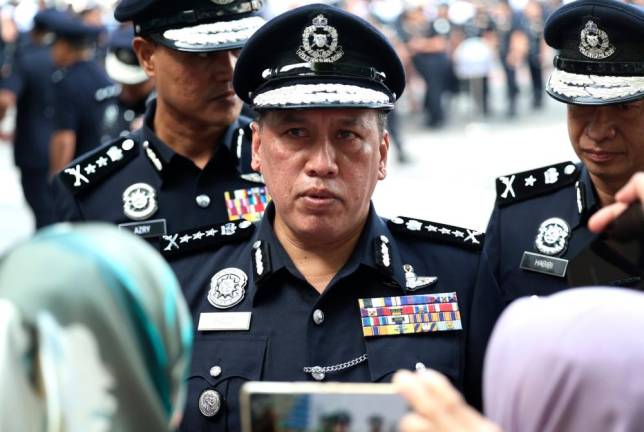RECENTLY, some rather exciting matters have been brought to the front pages of our media and onto our television screens.
The Rome Statute
First was the brouhaha over the government’s ratification of the Rome Statute, which established the International Criminal Court (ICC). The government was doing what the Federal Constitution mandates it to do exclusively. That is, conduct foreign affairs. Which includes signing up to treaties, international agreements and conventions. Little did anyone predict what twisted interpretation of the statute could be conjured up by fertile minds. That it would adversely affect the sultan, Islam and an ethnic race.
How an international court, set up to deal with crimes “that deeply shock the conscience of humanity”, could harm our royalty and a compassionate religion – is beyond the ken of anyone conversant with its 128 articles.
Essentially, the court will try anyone who actually commits, or authorises the commission of, these heinous crimes:
» Genocide: killing or injuring people with intent to destroy entire national, racial or religious groups;
» Crimes against humanity: acts such as murder, destruction, detention, rape, slavery, torture, committed as part of a widespread or systematic attack against any civilian population;
» War crimes: such killings, torture committed as part of a plan or policy or on a large scale.
Why is immunity sought for such crimes? Interestingly, Israel voted against establishing the ICC for fear of being tried for the forced settlement of occupied Palestinian territory? A “betrayal of the memory of the Holocaust”, as QC Geoffrey Robertson noted.
And why is immunity claimed for these crimes when there is no such immunity if these are committed within Malaysia? There is a special court to try any civil case or criminal offence committed by the Yang di-Pertuan Agong or State Ruler: Article 82 Federal Constitution. Presided over by the chief justice and chief judges of the High Courts and former judges appointed by the Conference of Rulers.
The Rome Statute reconciles the conflict between two objectives: the need to respect the sovereign equality of states from external interference, and, the commitment to take active steps to safeguard fundamental human rights – by ending the impunity of leaders from criminal prosecution. It has no jurisdiction if the country of the offender is itself able and willing to prosecute.
Who’s right to appoint MB?
Yet another headliner. Who has the ultimate right to choose the Johor MB: the party in power or the sultan? The formal appointment is by the sultan.
(Bukit Kepong assemblyman Dr Sahruddin Jamal was appointed the new mentri besar of Johor yesterday. Sultan Ibrahim Sultan Iskandar had given his consent for former mentri besar Datuk Osman Sapian to resign on Saturday.)
The country, said the PM, practises a constitutional monarchy and not an absolute monarchy: “If we consider that the ones who will choose the prime minister and the mentri besars are the rulers, then we will no longer be a democratic country anymore. Because if the rakyat have voted in a party who has the right to appoint the mentri besar, and this right is denied, then we are not a democracy”.
Under article 4 (2)(a) of the Johore Constitution the Ruler must appoint as MB a member of the Legislative Assembly who in his judgment is likely to command the confidence of the majority of the members of the assembly. This must necessarily mean the person nominated by the majority party.
The sultan does not have absolute discretion. The Federal Court in Nizar v Zambry (the Perak crisis case) ruled that once an MB loses the confidence of the majority of the members of the assembly, then the sultan is at liberty to appoint another MB to replace the then existing MB. Declared the chief justice: “But His Royal Highness must appoint someone who has the command and the confidence of the majority of the members of the Legislative Assembly”.
So, His Highness has no choice in the matter. It must be further noted that the Johore Constitution explicitly provides that the MB does not hold his position at the ruler’s pleasure. In other words, the sultan cannot dismiss the MB as he wishes. Indeed, there is no express provision for the dismissal of the MB.
The Federal Court in Nizar’s case recognised the right of the sultan to declare the office of the MB vacant even without a vote in the assembly. But this must be read in context: there the sultan had ascertained that the existing MB had numerically lost the confidence of the majority party in the assembly.
This means that if the numbers favour the candidate of the party ruling the state, then that candidate cannot be bypassed for appointment as MB.
Clearly, the law is on the side of the PM. Else His Highness will be embroiled in politics.
So used are we these days to such stormy issues that calmer weather may bore us. As the saying goes, “They sicken of the calm, who knew the storm.”
Gurdial is a former law professor at Universiti Malaya. Comments: letters@thesundaily.com











